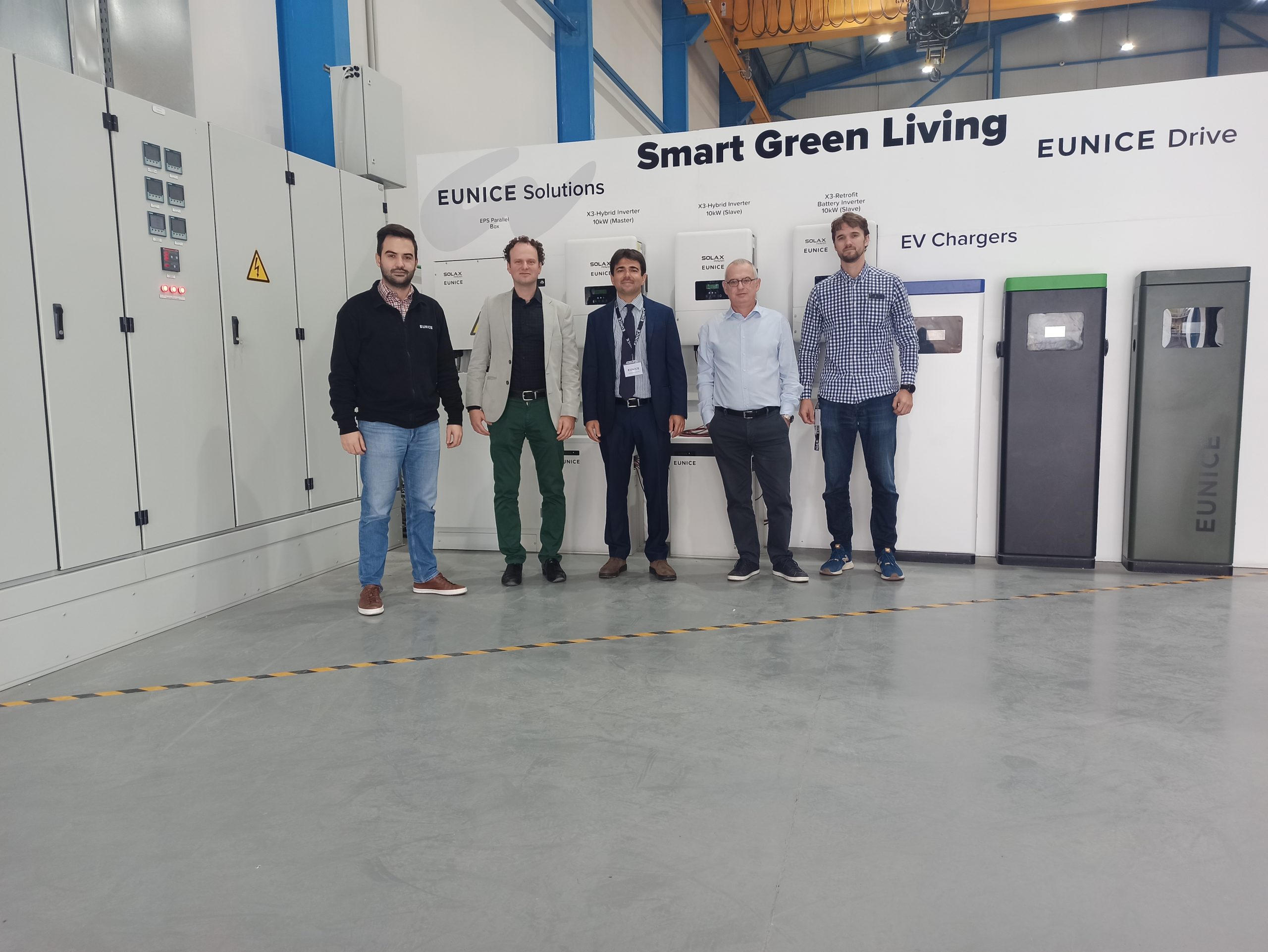In his recent visit to our factory, Alessandro Bianchini, Assistant Professor at the Department of Industrial Engineering (DIEF) Università Degli Studi di Firenze, among others noted that:
«Energy transition is urgent… In this perspective, the involvement of the private sector is key, since this is the only way to direct the research toward feasible targets… Eunice Energy Group is one of the most active companies in frontier research on the energy sector, and this will definitely represent a point of strength for it in the future since continuous innovation is the secret of success.»
Find below the entire interview that Professor Alessandro Bianchini gave to Eunice Energy Group.
1. How important is the private sector’s involvement in research to optimize renewable energy technology? In what way does Eunice Group’s participation in relevant research projects enhance its footprint?
Energy transition is urgent. If we look at IPCC reports, it is undisputed that effective actions need to be taken promptly. In this perspective the involvement of the private sector is key, since this is the only way to direct the research towards feasible targets. Upon my experience, Eunice Group is one of the most active companies in frontier research on the energy sector, and this will definitely represent a point of strength for it in the future, since continuous innovation is the secret of success.
2. How do you assess the level of research potential in the field of technology and energy in Greece?
South-Mediterranean countries, like Greece or Italy, are challenging case studies for the energy transition process. Differently from northern countries, we have a high population density, historic cities and we lack “abundant” resources almost for free like the strong wind in the Northern Sea. However, we can represent the foreruns for energy communities, innovative mixes of energy sources, and many other topics. Overall, my impression is that the potential is high, but the journey will require significant effort, as well as a change in people’s attitude. This last point is of particular importance, especially for a company like Eunice.
3. How urgent is it for energy companies to make an immediate shift to green and clean energy?
As discussed, energy transition overall is extremely urgent. We need to act now if we want to see some effects in years from now. As actions are urgent, no prejudice should be put in place and a variety of actions must be considered, e.g., coupling a shift to renewables with the increase of energy efficiency of existing plants.
4. What do you think the state’s incentives should be for citizens to switch to RES? And what do you think should be the focus of such a government policy?
State incentives are still key. Many new energy solutions are still not completely economically convenient or fall in the “pay-now, save-later” scheme that is so critical, especially during critical times like the ones we are living. Overall, my impression is that states should clearly define an energy plan, with clear actions and goals. Too often we saw in the past uncoordinated incentives on one technology or another. In connection to my previous points, incentives should be focused on measurable goals in terms of environmental benefits, without prejudices on one aspect or another. Overall, however, my impression is that special focus should be given to good practices in smart energy management systems, and it was a pleasure to me to see that this is also the main focus of Eunice’s program.
5. How does the energy crisis change the operation and landscape of energy companies operating in the renewable energy sector?
The energy crisis should not be seen as totally unexpected. Of course, it has been triggered by the catastrophic rise of a conflict but has its roots in the lack of a strategic vision of countries in the last few years. Beyond the dramatic effects we are living now, this crisis could also represent the catalyst for a real energy transition. In this process, energy companies are asked to respond as quickly as possible to these changes, putting in place countermeasures and mitigation actions based on those innovation potential that we were mentioning before.
6. What role can green hydrogen play in Europe? What are the benefits?
Hydrogen is probably the keyword now in the energy discussion. Many people are referring to is as the real game changer, although sometimes this approach appears probably simplistic. If one clusters all the applications for which hydrogen is claimed as the solution, this will probably turn out into an amount of (likely green) hydrogen we are simply not able to produce. My personal vision (but the topic is so complex that nobody can really be sure about the current opinion) is that hydrogen will key to decarbonize the “hard to abate” industrial sectors. Its use in aviation is also very promising, as testified by the plans released, for example, by Airbus lately. On the other hand, hydrogen use for space heating or terrestrial mobility seems me quite unfeasible. For sure, we need to increase green hydrogen production, and my research group is investing into these aspects.
7. How Smart EV Charging will help promote Renewable Power Generation?
Electric vehicles will represent not only a mean of transportation, but also a “live” element of our future smart grids. In this perspective, their recharging/discharging needs special attention, both providing new and more effective technologies and improving the way their management is integrated in the global management of the grid. Another key point, in humble vision, is that too often we try to apply the same business or technical models in different countries. This is wrong and not effective. Each country, society, or even region has its own characteristics in terms of habits, built environment, attitude, resources, etc. and we need to think about flexible way of introducing EV charging.







